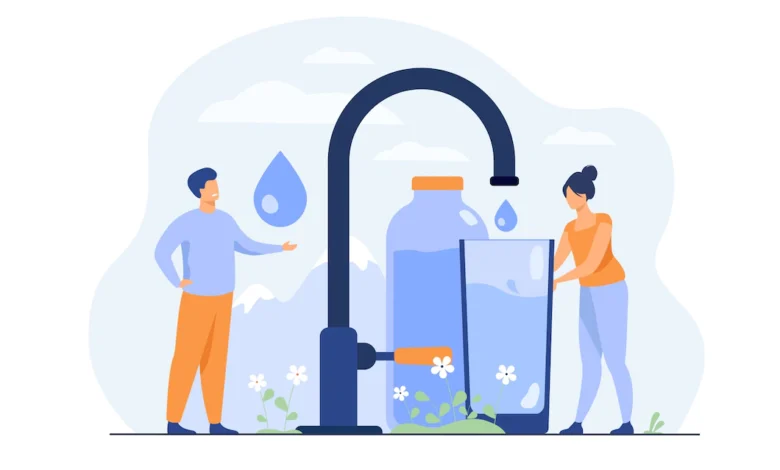Choosing A Home Water Filter: The Easy Way

PFCs, heavy metals, pharmaceutical residues, and pesticides are just some of the industrial chemicals detected in water systems worldwide. The responsibility for safeguarding yourselves and your family falls on your shoulders, as it does with so much else in your poisoned environment. Thankfully, decent water filter systems may make a big difference for a minor investment in terms of cost if you’re concerned about drinking water safety. An in-home water test may reveal the precise chemical constituents of the water that flows through your pipes. Using this, you may determine whether your water is contaminated with lead, bacteria, pesticides, nitrates, chlorine, or nitrites.
The water’s hardness and pH may be determined by taking the test. Get your private well water tested twice yearly, either by taking a sample and shipping it to a lab or using a kit to run the test at home. The components of the residential well test are identical to those of the municipal water test, with the addition of iron and copper. Keep reading to learn the essentials for enhancing your decision-making abilities and the quality of your water supply. Think about which filters get rid of specific contaminants after you know what’s in your water. However, certain standard rules exist to follow, even if specifics vary widely by brand and model.
Table of Contents
Filter for pitcher’s mound
The tiny print may be worth reading if you’ve used a pitcher filter to purify your water. Pitcher filters generally only decrease a small number of pollutants (such as chlorine), and water that rests in plastic for extended periods may absorb chemicals from the pitcher. Pitchers are cheap, but they only remove some impurities from your water, leaving the flavour and smell unchanged. Similarly, the basic filters used in water dispensers in refrigerators waste power while only removing a minimal amount of impurities.
In-sink filter
In some instances, filters designed to be attached to a sink’s faucet may effectively eliminate most waterborne pollutants. Again, since filter efficiency varies greatly, check the tiny print to ensure they are filtering the unwanted content. While it’s true that faucet-mounted filters are cheap and straightforward to change, you may discover that a higher-quality filter, while more costly upfront, ends up costing you less over time.
Water Filter for the Countertop
A countertop filter may be attached to your sink’s faucet, or it can be a standalone, gravity-fed filter that doesn’t need additional room. Neither of them needs to be hooked up by a plumber. A filter directly connected to your water supply eliminates the need for frequent filter container refills. Even if there is a problem with the water supply or the power goes out, a gravity-fed filter will still be able to clean water in an emergency. When the electricity goes out, municipal water systems can’t maintain water pressure, and well pumps won’t function without a backup power source.
Filtration system for the shower
Most people don’t give shower water filtration much thought, yet it may also need to be filtered. The water from your shower still contains the chlorine used by your water provider to kill germs. Turning on the shower releases the chlorine into the air, where it may be inhaled and absorbed via the skin and lungs. Chloramines and chloroform, two other chemicals that often end up in treated water, may also be released into the air. One way to reduce your exposure to chlorine is by installing a shower filter.
Conclusion
Although whole-house water filter systems effectively remove certain pollutants from water entering the home, they cannot remove as many impurities as a drinking water filter. If you want to significantly reduce your exposure to chloramines or chlorine, a quality whole home filter may be pretty pricey but worthwhile.




